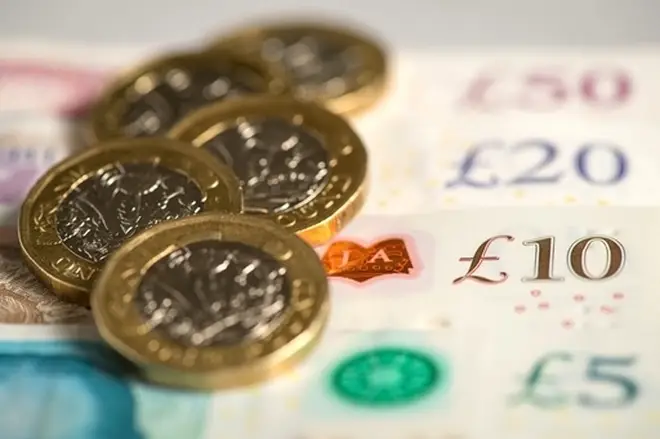Scotland's defecit falls to £12.6bn
21 August 2019, 11:00

Scotland's fiscal deficit fell for the third year running but the Government is still spending £12.6 billion more than it receives despite record tax revenues, official figures show.
Government Expenditure and Revenue Scotland (Gers) statistics reveal the deficit is 7% of the country's gross domestic product (GDP), compared with the UK's 1.1% fiscal deficit.
The independent Gers report estimates the level of public revenue raised in Scotland and the level of public spending under the current constitutional arrangements.
Public spending in Scotland was £75.3 billion, with taxes raising £62.7 billion, in the 2018-19 financial year.
The "black hole" in Scotland's finances has improved on last year's £13.4 billion deficit including North Sea oil and gas revenue, without which the deficit would be £14.1 billion, or 8.5% of Scottish GDP.
The Gers figures published on Wednesday also show current budget balance - Government spending not including capital investment - faced a £7.9 billion deficit (4.4% of GDP) while the UK was running a surplus of £18.1 billion (0.8% of GDP).
Finance Secretary Derek Mackay argued the economic results show "Scotland's economy and public finances are strong", citing the Scottish Government's highest-ever tax revenues.
He said: "Today's figures show overall revenue in Scotland reached £62.7 billion - exceeding £60 billion for the first time - reflecting the strength of our economy.
"Our notional deficit has fallen while public spending has increased thanks to our efforts to grow the onshore economy and the strong performance of taxes in Scotland. The Scottish Government's choices on taxation are helping to create a more progressive tax system.
"This strong performance from Scotland's economy is at risk as a result of the UK Government's EU exit plans, and in particular a no-deal Brexit, which poses a severe threat to jobs, investment and living standards."
Mr Mackay also warned that a no-deal Brexit could hit Scottish tax revenues by approximately £2.5 billion a year, and claimed: "We could unlock our full potential with independence, allowing us to take the best decisions for Scotland.
"As we have always said, Scotland has a strong, and growing, economy and our future will be far brighter as an independent member of the EU."
Total public sector expenditure for Scotland in 2018-19 is estimated to be £75.3 billion, an increase of 2.5% on last year and equivalent to 9.3% of total UK public sector expenditure.
However, the Gers report said Scottish Government spending as a share of GDP "has been falling in recent years", down by 0.7% excluding the North Sea figures.
"This reflects GDP growing relatively faster in Scotland," the report explains.
It added: "Including an illustrative geographical share of the North Sea, expenditure as a share of GDP fell by 1.3 percentage points in 2018-19.
"This reflects an increase in North Sea GDP, which grew by 29% in 2018-19, helped by rising production."
The figures, compiled by Scotland's chief statistician, show that last year public sector revenue was £11,531 per person, £307 less than the UK average, while total expenditure in Scotland was £13,854 per person, £1,661 higher than the UK average.
Scottish Secretary Alister Jack said the Gers figures "show clearly how Scotland benefits from being part of a strong United Kingdom", claiming every Scot received a "Union dividend" of nearly £2,000 a year.
Mr Jack added: "These Scottish Government figures also show there would be a £12.6 billion black hole at the centre of an independent Scotland's finances.
"Real questions need to be asked about the First Minister's stewardship of the country's economy.
"With Scotland's deficit now more than six times greater than the UK average, the Scottish Government needs to take action."
Scottish Labour leader Richard Leonard called for Ms Sturgeon "to admit that her independence plans would mean unprecedented cuts for Scotland's schools and hospitals".
He added: "These figures underline the importance to Scotland's vital public services like our NHS of remaining part of the UK.
"A stand-alone Scotland would have one of the biggest fiscal deficits in the developed world, and the SNP's shock treatment plan to close it is by dumping the pound and imposing unprecedented levels of austerity."






















